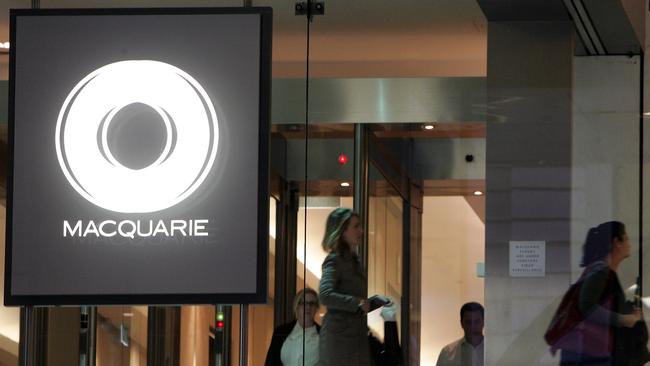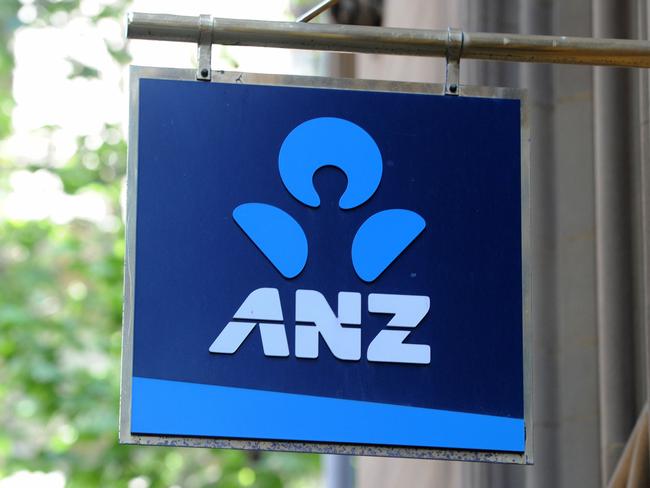ANZ, Macquarie fined for attempted cartel conduct
ANZ and Macquarie Bank have admitted to attempted cartel conduct over trading in the Malaysian ringgit.

ANZ and Macquarie Bank are set to pay total penalties of $15 million after admitting to several instances of attempted cartel conduct following a probe from the competition watchdog.
The Australian Competition and Consumer Commission said it had instituted proceedings against both banks amid assertions they attempted to influence the benchmark Malaysian ringgit fixing rate on several occasions in 2011.
ANZ and Macquarie both admitted to several instances of attempted cartel conduct ahead of Federal Court proceedings, with ANZ conceding 10 instances and Macquarie eight.
As part of the concessions the two institutions noted a Macquarie trader, three ANZ traders and employees of several other unnamed Singapore-based banks discussed daily submissions to be made to the Association of Banks in Singapore (ABS) in relation to the benchmark rate for the ringgit.
They also confessed that on numerous occasions in 2011 the aforementioned traders attempted to make arrangements with other banks that particular submitting banks would make high or low submissions to the ABS in relation to the ringgit fixing rate.

In the view of the ACCC, the two banks sought to influence the ringgit fixing rate in a manner that would have contravened Australian cartel provisions.
Following the admission of guilt, ANZ (ANZ) and the ACCC have agreed on a $9 million fine, while Macquarie (MQG) has agreed to cop a $6m fine.
Both penalties will need to be approved by the court, which will decide if the fines are the appropriate punishment.
ANZ and Macquarie have also said they will pay a portion of the ACCC’s costs relating to the case.
“These proceedings are a reminder that Australian cartel laws apply to financial markets, and capture cartel conduct by firms that carry on business in Australia, regardless of where that conduct occurred,” ACCC chairman Rod Sims said.
“The ACCC recognises the integrity of foreign exchange markets plays a fundamental role in our market economy.”

In a separate statement, ANZ said it acknowledged three of its staff “unsuccessfully attempted” to manipulate the ringgit fixing rate, with all three employees no longer employed by the bank.
“We have an obligation to ensure our people, both here in Australia and overseas, comply with the law at all times,” ANZ chief risk officer Nigel Williams said.
“While there is no evidence that forex benchmarks in Singapore were successfully influenced, we accept responsibility and apologise for the actions of our former employees.
“We have made significant improvements to our compliance, training and monitoring systems to ensure this does not happen again.”
The case had been investigated previously by the Monetary Authority of Singapore in 2013, which failed to find conclusive evidence of rate fixing.
However, ANZ was among several banks forced to set aside additional reserves and undertake a remediation program following that probe.
Meanwhile, Macquarie said the “junior employee” involved had their contract terminated in 2012.
“Macquarie notes the ACCC does not allege, nor does Macquarie make an admission, that it engaged in any conduct affecting the benchmark or that Macquarie obtained any benefit from the attempted behaviour,” the group said.
“Since Macquarie became aware of the matter … it has significantly strengthened its e-communication surveillance globally, improved trade monitoring and intensified training for its front office staff.”
The confessions from the two banks come as they face a wideranging US class action over the alleged manipulation of Australia’s benchmark rate, while the big four banks — ANZ, Commonwealth Bank, NAB and Westpac — are facing intense scrutiny from ASIC in relation to the same issue.
The news had minimal impact on the share prices of Macquarie Group and ANZ in morning trade, although the two companies fell slightly further than most of their peers.
At 10.30am (AEDT), Macquarie was off 0.8 per cent at $84.195, while ANZ dipped 0.6 per cent to $28.17.





